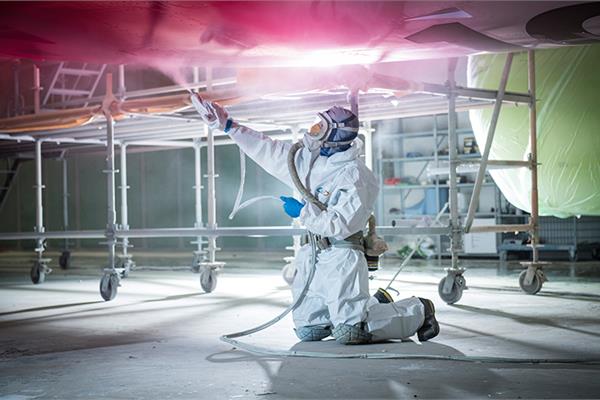
AkzoNobel is part of a consortium aiming to take sustainable innovation in aviation to new heights.
Where's the next level of innovation in the aviation industry going to come from? Well, AkzoNobel is working on it.
AkzoNobel has been part of the CleanSky2 EcoTECH consortium since 2016. A future-focused fusion of universities, research institutes and private businesses, it's looking at ways to develop new technologies to reduce the environmental footprint of aircraft production.
Members of the project recently got together at AkzoNobel's site in Sassenheim, the Netherlands, for the latest meeting of creative minds.
"The aviation industry faces a number of challenges and the next generation of aerospace technologies needs to respond to several specific operational and societal pressures," explains AkzoNobel Aerospace Coatings Lab Manager, Marc van der Geest. "There is clearly a growing demand for aircraft, but also a demand to reduce fuel consumption, noise, emission of pollutants and maintenance costs. On top of that, there is a need for materials used in the next generation of the aviation industry to become lighter, cheaper and more eco-compliant for disposal."
The partner organizations are divided into different areas of focus. AkzoNobel's contribution is greatest in the metallic work stream, where it is represented by Peter Visser. Project leader of the company's Corrosion Expertise Group, Peter was recently awarded a PhD for his breakthrough research into how to remove chromates from aerospace coatings that protect aluminium against corrosion.
Says Peter: "The consortium is a great opportunity for us to optimize each other's techniques and behaviours, years before they are actually used in the manufacturing process. Being part of this project allows us to accelerate our product development and capture synergies between the different members."
The EcoTECH consortium includes 12 partners from Germany, the Netherlands, Israel, Greece and Spain and is co-led by Airbus, Dassault Aviation and Fraunhofer. The project will run until 2024. A similar previous initiative – which focused on aircraft design – resulted in 1.5 million jobs and $160 billion worth of new products and services.